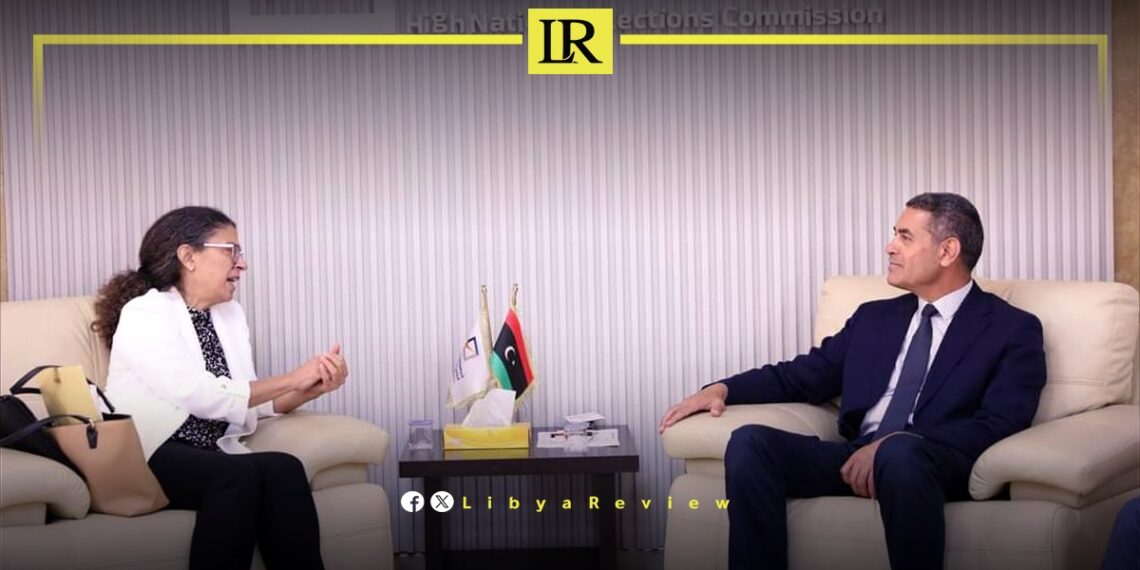On Monday, the head of the High National Election Commission (HNEC), Emad Al-Sayeh, welcomed Stephanie Khoury, Deputy Special Representative of the UN Secretary-General, along with her delegation, at the HNEC headquarters. This visit marks Khoury’s first to Libya in her new capacity.
During their meeting, they examined the positions of political stakeholders on the electoral process, with a particular focus on the municipal council elections. These elections are critical for the governance and stability of local communities in Libya.
The discussion also highlighted the crucial role of the executive authority in supporting the HNEC. This support includes providing financial resources and ensuring security, both of which are essential for the successful conduct of the municipal council elections.
Additionally, they addressed the challenges faced by the support project managed by the United Nations Development Programme (UNDP) in Libya. The conversation emphasized the need for urgent decisions to advance the project, which is designed to bolster the municipal electoral process.
Libya is at a pivotal moment in its journey toward political stability and democratic governance. Following years of conflict and division, the country is working to rebuild its political institutions through a series of elections, including those for municipal councils. These local elections are vital as they lay the foundation for decentralized governance, allowing local authorities to address community-specific issues more effectively.
Despite these efforts, several challenges persist. Political divisions and security concerns remain significant hurdles. Additionally, financial constraints limit the resources available for organizing elections. The UNDP’s project aims to address these challenges by offering comprehensive support to the HNEC, ensuring that the electoral process is not only successful but also sustainable in the long term.
The involvement of international bodies in Libya’s electoral process has been met with a mix of optimism and skepticism by local communities. Many Libyans see the support from the UN as a positive step towards achieving stability and democratic governance. They believe that international oversight can help ensure the transparency and fairness of the elections.
However, there are also concerns about foreign influence and the ability of local authorities to maintain control over their own political processes. Some political factions argue that while international support is necessary, it should not undermine Libya’s sovereignty.


